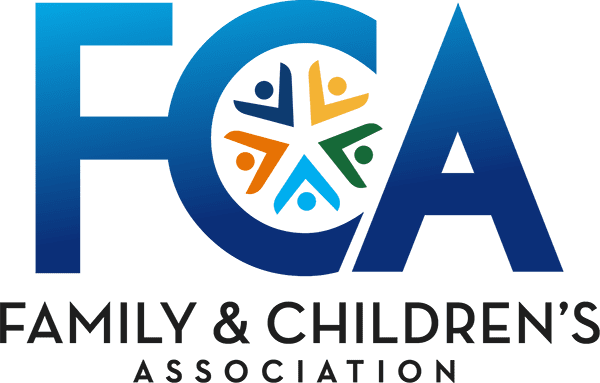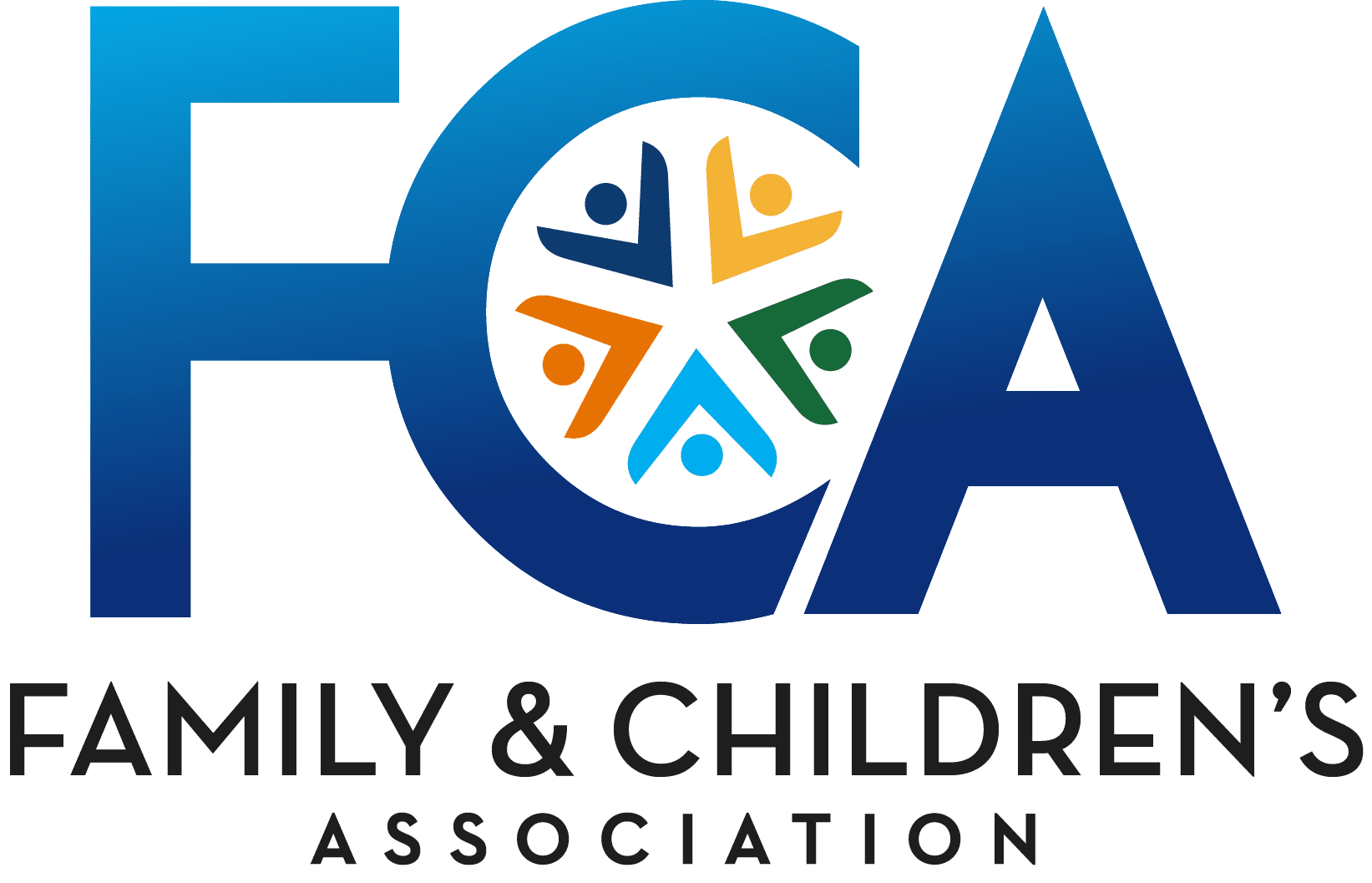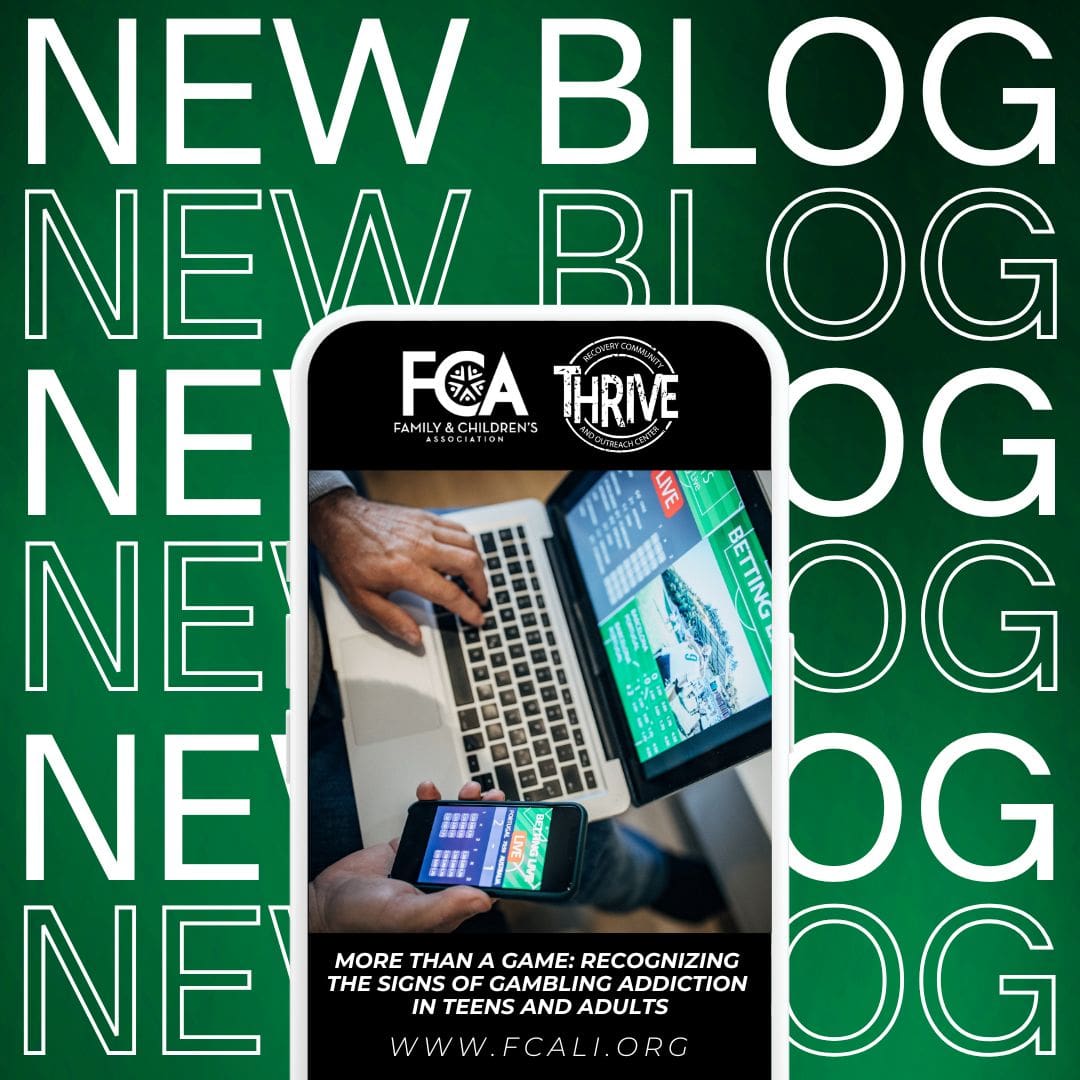by Joshua Mass,
Problem Gambling Coordinator, FCA
As the hot summer weather begins to wind down, people of all ages look forward to all the joys autumn brings. Kids look forward to catching up with friends after summer vacation, adults are excited to settle back into schooltime routines for their children, everyone can breathe a sigh of relief as the humidity drops and cooler breezes waft through the air. Of course, for many Americans the fall really means only one important thing: the start of the most popular sport in the country, football season. This of course means more snacks, more jerseys, more yelling (in joy or in anger), and more betting.
But that last thing, more betting, poses a bigger challenge for some than for others. Much like some adults can go to a bar on a Friday night, order a drink, and head home, some people have no problem putting a few dollars down with a friend on the outcome of the Jets/Patriots game, or buying a few boxes in their office’s Superbowl Box pool; it is a fun thrill that might with them a few bucks and nothing more. Unfortunately, just like those suffering from alcoholism, who don’t leave the bar after one drink and instead spiral until last call when they go to find their next fix, there are those for whom gambling is anything but a one-off event.
Problem gambling is defined as a pattern of gambling behavior which leads to impairment or distress over a 12-month period, though many of those suffering its effects would suggest that it lasts much longer than that. Current statistics show that between 1-4% of American adults, some 2.5-8 million people, experience mild to severe problems from their gambling. For those affected by it, gambling is anything but a cheap thrill, costing them paycheck after paycheck, causing some to lose their homes or businesses, or leading to divorce. Worst of all, it cost their mental health, with gambling indicating a whopping FOUR TIMES increased likelihood for suicidal ideations and attempts over other addiction disorders.
Unfortunately, much like alcohol consumption, gambling does not preclude teenagers just because of a legally posted age restriction. Many teenagers can recall playing poker with relatives or being given scratch offs as birthday gifts. With companies like Fanduel or Caesar’s advertising sports betting during games, people of all ages are constantly exposed to gambling without ever setting foot into a casino, entirely circumventing those age restrictions. Even innocuous activities like video games have gambling like mechanics, such as loot boxes. This is especially troubling, since research shows that earlier exposure to gambling leads to an increased risk of problem gambling as an adult. In fact, 4-8% of youth are impacted by problem gambling, a much higher rate than adults, developing in children as young as 10. 80% of high schoolers in the US report having gambled at least once in the last year.
Is it all doom and gloom then? Are we powerless to stand in the face of a society with increasingly normalized betting? Of course not! As with all community health concerns, our biggest strength is in standing together, and the first step towards that is knowledge. Gambling is known as the “hidden addiction,” as there is no blood test or urine sample that can prove that someone has been “using.” By learning to recognize the signs of problem gambling however, we can ensure that we are ready to combat this issue with our friends, loved ones, coworkers, and community, together.
So, what are the signs of problem gambling? In teens it can manifest in a number of ways, but here are the more pronounced changes (in no particular order) to look out for:
- Increased changes in mood – While this may be easy to write off as typical teenager behavior, sudden increases in aggression, defensiveness, or anxious behavior could indicate problems with gambling.
- Changes in attitude around competition, or preoccupation with gambling – For a child to suddenly have a preoccupation with “winning” or just “being right,” it could once again be a normal teenage push for more independence, or it could be a sign of problem gambling behavior. Alternatively, placing bets on normal leisure activities, or use of gambling lingo, are also both warning signs.
- Sudden increase in wealth – This can be anything from new electronics to new shoes, new clothes, or anything of value that their parent did not purchase for them. It could also be interest in going to places such as restaurants alone and insisting they don’t need money as they already have it covered. It is important to ask where this money is coming from. It could be coming from parents’ stashes of money, so it is important to check those to see if anything is missing.
- Increased secrecy around their internet habits – Teenagers are not allowed into casinos, but the rise in mobile apps allowing for gambling and minimal restrictions mean they can still gamble just as easily. Defensiveness or secrecy about being on their phone could belie use of these sorts of sites to gamble.
In adults, it can be trickier. Without someone acting as a parent and checking over their shoulder, it is easier for someone to hide the effects of their gambling. However, there are still behaviors to look out for:
- Asking to borrow money to pay bills or cover losses – This may be disguised as other financial distress, but sudden or repeated requests for money, especially if they have not been common in the past, could be a warning sign of increased gambling.
- Lying about or downplaying their gambling – A large element of problem gambling is shame over what their losses could cost their loved This frequently leads to lying about the behavior, either its frequency or its impact on their financials, especially if someone close to them is showing increased attention and concern.
- Chasing losses – Those suffering from problem gambling tend to see it as the only solution to their problems: one more big win will get them out of debt, so they just need a little bit more to secure that and then never gamble again. Unfortunately, not only does increased gambling tend to lead to increased loss, it also rarely means stopping even if a big win does come; the same neural pathways for reward and dopamine are formed with gambling as they are with other addiction disorders.
- Showing a preoccupation with gambling – If someone who typically finds joy in other leisure activities suddenly only wants to go to the casino, or an OTB parlor, or the horserace track, it can be an obvious sign of problem gambling behavior. This can also manifest in an obsessive checking of sports game scores, or constant use of their phone without indication as to what they are doing.
By recognizing these behaviors, we can open the doors to conversation with those we care about suffering from problem gambling. Armed with knowledge, a listening ear, and a willingness to aid them, we can encourage those individuals to seek help. We here at FCA provide group and individual counseling services, family counseling, case management, and more. Organizations like GamFin exist to provide financial counseling support to individuals and their families who have difficulties related to their gambling. Gamblers Anonymous provides group meetings as places to share similar stories and lived experience to help one another stay on track with their sobriety.
It may be the “hidden addiction,” but together we can shine a spotlight on problem gambling and help those in need.








